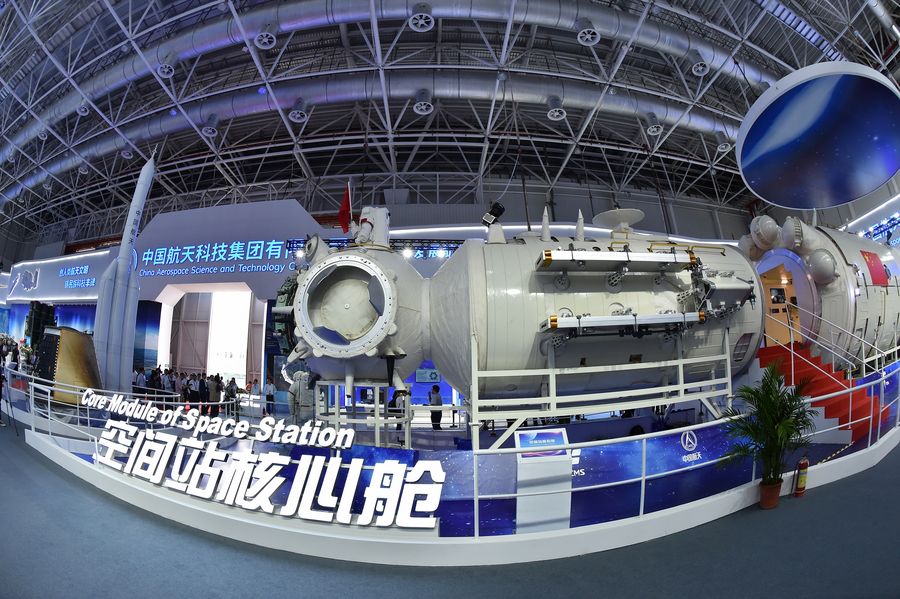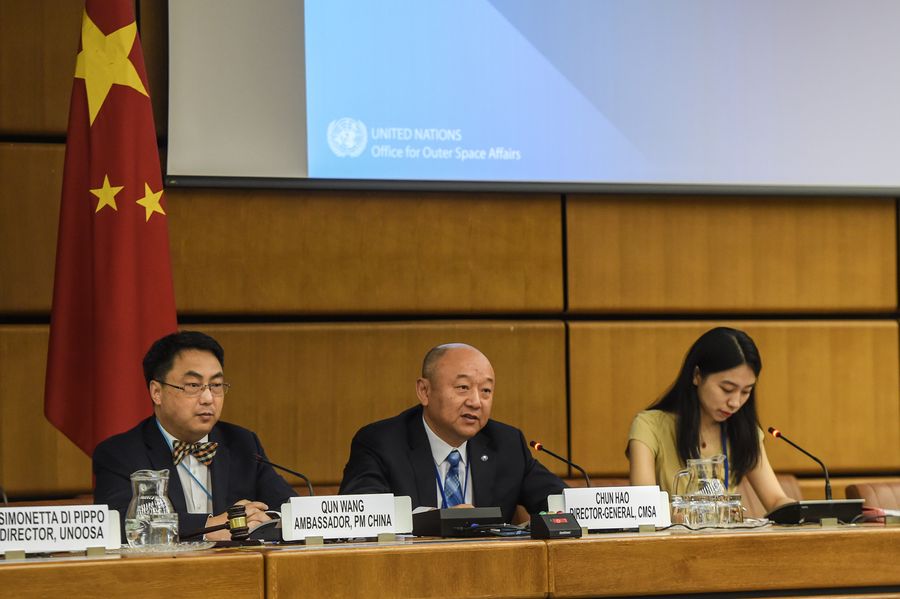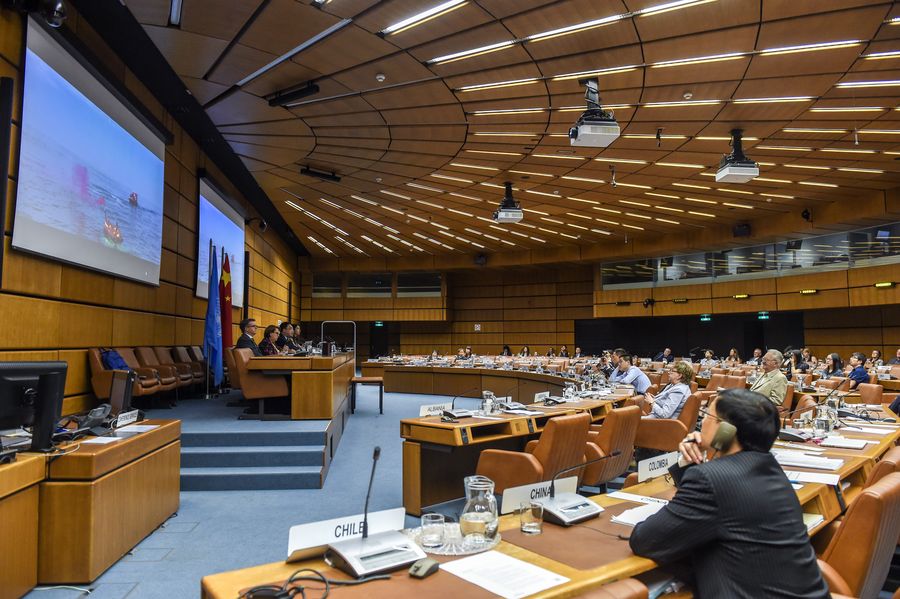
Photo taken on Nov. 5, 2018 shows a full-size model of the core module of China's space station Tianhe exhibited at the 12th China International Aviation and Aerospace Exhibition (Airshow China) in Zhuhai, south China's Guangdong Province. (Xinhua/Liang Xu)
To achieve greater progress in this area, the international community needs to stand as one and form synergy.
by Xinhua writers Zhao Feifei, Wang Zichen
VIENNA, Nov. 23 (Xinhua) -- Fifty years ago, astronaut and moonwalker Neil Armstrong described the outer space from another perspective: "It suddenly struck me that that tiny pea, pretty and blue, was the Earth. I put up my thumb and shut one eye, and my thumb blotted out the planet Earth. I didn't feel like a giant. I felt very, very small."
Today, the exploration and use of the outer space have been developing at an unexpectedly fast pace. But still, the vast and mysterious universe is far beyond the knowledge of human beings.
To achieve greater progress in this area, the international community needs to stand as one and form synergy.
JOINT EFFORTS
Ever since the Outer Space Treaty came into force on Oct. 10, 1967, the world has realized the importance of multilateral cooperation in science and technology advancement.
The treaty recognizes the common interest of all mankind in space exploration and believes that the exploration and use of outer space should be carried out for the benefits of all peoples.
"Collaboration in space exploration has provided what I would call 'soft' diplomatic power for many decades, through the Cold War and after. It has helped improve relations between countries during time of great difficulty," said Martin Barstow, a professor at University of Leicester and former president of the Royal Astronomical Society.
China has committed itself to these principles and made various contributions to the peaceful use of outer space. Its latest action is offering opportunities for experiments aboard China Space Station to all member states of the United Nations, with particular attention to developing countries.

Hao Chun (C), director general of the China Manned Space Agency (CMSA), speaks at a conference in Vienna, Austria, June 12, 2019. (Xinhua/Guo Chen)
China Manned Space Agency (CMSA) and the United Nations Office of Outer Space Affairs (UNOOSA) announced the selection of nine international scientific experiments aboard the China Space Station this June in Vienna. These experiments involve 23 entities from 17 countries and cover a diverse set of research areas such as space medicine, space life science, biotechnology, physics and astronomy.
"I think this is (a) tremendous idea. Experiments can be taken to the International Space Station (ISS) from many countries, but these usually have to belong to the ISS partners," Barstow said. "A complete open call to countries worldwide is new, very exciting and will give opportunities to many countries that do not have access to space."
"I think this sends a very positive message about collaboration and foster a good atmosphere across the space community," said the professor.
UPHOLDING SPIRIT OF MULTILATERALISM
"I applaud the efforts of China in establishing a new foothold in space," said Leonard David, a veteran space journalist and author of the newly-published book "Moon Rush -- The New Space Race."
"From the vantage point of their space station, a variety of scientific pursuits can be staged, for the benefit of all humankind," said David.
This is "the first time that something like that has been done," according to Simonetta Di Pippo, director of UNOOSA. "We have other agreements with other space agencies and other entities to do similar things, but not so broad as in the case of the CSS (China Space Station)."

Participants are seen at a conference to announce the selected experiments on board the China Space Station (CSS) held in Vienna, Austria, June 12, 2019. (Xinhua/Guo Chen)
The UN space chief, in an interview with Xinhua in June, also said China's Beidou Navigation Satellite System (BDS) is now "a real pillar in this architecture" of global navigation satellite systems.
"Together with Beidou, we bring up the same table the Russian Federation with GLONASS, the Europeans with Galileo and the Americans with GPS, plus others which are preparing ... to launch their own systems," she said.
These systems are not in a war with each other, the UN space chief said, as there is a mechanism called ICG (International Committee on Global Navigation Satellite Systems), which is "a sort of a role model in terms of international cooperation, because we put together all the providers and in this way we can increase precision."
"We can add a higher number of satellites and coverage so the signal is more precise and more stable," which she said would allow the signals to be "used by everyone in the world."
Author Frank White first coined the term the "overview effect" when he was flying in an airplane in the 1970s. From the vantage point up in the space, national boundaries disappear and conflicts that divide people become less important.
As White said, "We're all part of that system, and there is a certain unity and coherence to it all." ■



